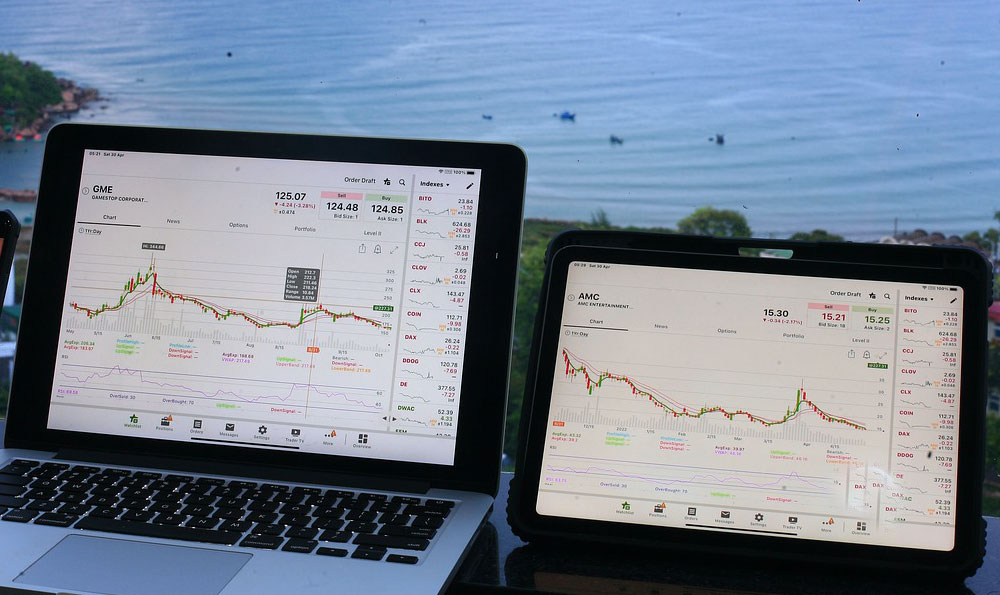Okay, I'm ready. Here's an article based on the provided title, focusing on monetizing Google, covering various options, and providing a starting point, while adhering to the specified requirements.
Google, a titan in the digital landscape, offers a vast array of avenues for monetization, ranging from the straightforward to the strategically complex. Understanding these options and knowing how to navigate the initial steps is crucial for anyone seeking to tap into Google's immense potential for generating revenue. Let's delve into the diverse methods available and how to effectively launch your journey towards monetization.
Perhaps the most widely recognized method is through Google AdSense. This program allows website owners and content creators to display targeted advertisements on their platforms. When visitors click on these ads, you earn a portion of the revenue generated. The beauty of AdSense lies in its accessibility. With a website, blog, or even a YouTube channel that adheres to Google's guidelines, you can apply to become a publisher. Approval hinges on factors like original content, a user-friendly design, and adherence to Google's content policies, which prohibit things like promoting violence, hate speech, or illegal activities. Once approved, you simply integrate the provided code into your website, and ads begin appearing. The earnings potential is dependent on factors such as the niche you're in, the quality of your content, and the location of your audience. Niches with high competition and lucrative keywords tend to yield higher returns, but they also require significant effort in content creation and search engine optimization (SEO).

Moving beyond AdSense, YouTube monetization presents another compelling opportunity. If you're a video creator, you can join the YouTube Partner Program (YPP) and enable monetization on your videos. This allows you to display ads before, during, or after your content. The eligibility criteria for the YPP include having at least 1,000 subscribers and 4,000 valid watch hours in the past 12 months. Once accepted, you can connect your YouTube channel to an AdSense account and start earning from ad revenue. Furthermore, YouTube offers additional monetization features like channel memberships, allowing viewers to support your channel directly in exchange for exclusive perks; Super Chat & Super Stickers, which let fans highlight their messages in live chats; and the YouTube Shopping program, enabling you to showcase and sell your merchandise directly to your audience. Crafting engaging content, consistently uploading videos, and promoting your channel are vital for success on YouTube. Understanding YouTube SEO, which involves optimizing your video titles, descriptions, and tags for search, is also essential for maximizing visibility and attracting viewers.
For businesses with physical locations, Google My Business (GMB) offers an often-overlooked monetization strategy. While not directly generating revenue in the same way as AdSense or YouTube, GMB allows you to enhance your online presence and attract more customers to your business. By claiming and optimizing your GMB listing, you can ensure that your business appears prominently in Google Search and Maps results when people search for relevant products or services in your area. This includes providing accurate information about your business hours, address, phone number, and website, as well as adding photos and responding to customer reviews. A well-optimized GMB listing can significantly increase foot traffic to your physical location and drive online sales. Furthermore, you can utilize Google Ads to promote your GMB listing and reach a wider audience.
Google Ads, formerly known as Google AdWords, represents a powerful tool for driving targeted traffic to your website or landing page. With Google Ads, you can create and manage online advertising campaigns that appear on Google Search and its network of partner websites. The platform allows you to target specific keywords, demographics, and geographic locations, ensuring that your ads are seen by the people most likely to be interested in your products or services. Google Ads operates on a pay-per-click (PPC) model, meaning you only pay when someone clicks on your ad. While Google Ads can be an effective way to generate leads and sales, it requires careful planning and execution. You need to conduct thorough keyword research, create compelling ad copy, and track your campaign performance to optimize your bids and targeting. A poorly managed Google Ads campaign can quickly burn through your budget without generating significant results.
Another indirect but powerful method to monetize your expertise is by offering Google-related services as a freelancer or consultant. Many businesses and individuals struggle with mastering Google's various platforms, including Google Ads, Google Analytics, Google Workspace, and Google Cloud. If you possess specialized knowledge in any of these areas, you can offer your services to help them optimize their online presence, improve their marketing campaigns, or manage their data. This can involve tasks such as setting up and managing Google Ads campaigns, analyzing website traffic data with Google Analytics, providing training on Google Workspace tools, or helping businesses migrate to Google Cloud. Building a portfolio of successful projects and showcasing your expertise through a website or online profiles can attract clients seeking your services.
Finally, consider leveraging the Google Play Store if you're a developer. Creating and selling apps, either through direct purchase or in-app purchases, can be a lucrative way to monetize your skills. This requires coding knowledge and a compelling app idea that addresses a specific need or provides entertainment. Marketing your app effectively through app store optimization (ASO) is crucial for gaining visibility and attracting downloads. ASO involves optimizing your app's title, description, keywords, and screenshots to improve its ranking in the Google Play Store search results.
Getting started with any of these monetization methods requires a clear strategy and a commitment to continuous learning. Begin by identifying your strengths and interests. Are you a talented writer, a skilled video creator, or a marketing expert? Choose the monetization method that aligns best with your skills and the resources you have available. Next, conduct thorough research to understand the specific requirements and best practices for your chosen method. Google provides a wealth of documentation and resources to help you get started. Don't be afraid to experiment and track your results to see what works best for you. Finally, stay up-to-date with the latest trends and changes in Google's algorithms and policies. The digital landscape is constantly evolving, and what works today may not work tomorrow. By staying informed and adaptable, you can maximize your chances of success in monetizing Google's vast potential.












